Cannabidiol, also called “CBD” is classified as a cannabinoid – ie. a chemically active substance found in cannabis plants.
CBD’s medicinal properties have only just begun to be discovered – and more science will in the future support that. Cannabis CBD is a legitimate medicinal product with a wide range of beneficial physical and mental effects.
Remedies CBD is used for:
- Epilepsy and nerve disorders
- Pain
- Inflammation
- Nausea
- Migraines
- Depression
- Anxiety & PTSD
- Crohn’s disease
- Sclerosis
- Alcohol and opioid withdrawal symptoms
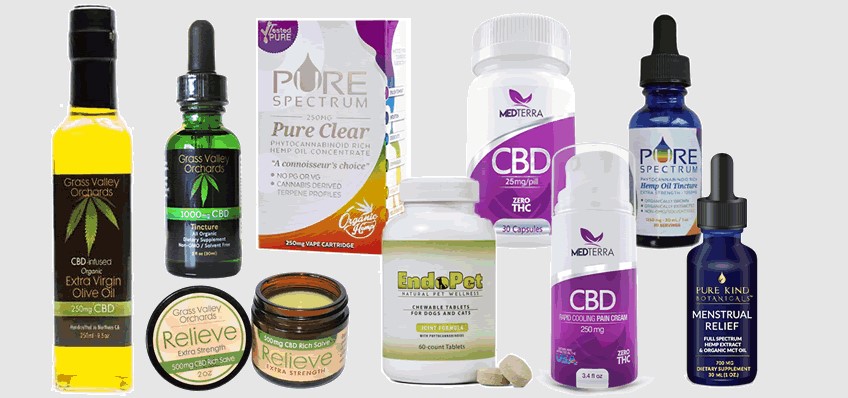
What is the difference between CBD & THC?
CBD and THC are the most prevalent cannabinoids found in cannabis. All cannabis plants contain a little bit of both THC and CBD, but the specific variety determines how much.
THC is found in large quantities on skunk plants, which are grown for the purpose of raising THC to a high level. Many skunk varieties can achieve a THC concentration of over 20%.
In contrast, hemp is specifically defined as any type of cannabis containing less than 0.3% THC. In other words, it is the content of THC that separates the two species.
Both species of cannabis, both skunk and hemp, can have a high content of CDB.
Here, however, hemp has a specific advantage – because hemp has a low THC content, it is often legal to grow the plant for industrial consumption. Therefore, hemp is mainly grown for the production of CBD oil – and the rest of the hemp plant can also be used for several industrial purposes.
A very important difference between CDB and THC is that CDB does not cause intoxication. Thus, there is no noticeable psychoactive effect or euphoric intoxication of taking CDB oil or similar products.
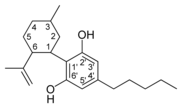
CBD versus THC: chemical structure
THC and CBD have the same molecular makeup: 21 atoms of carbon, 30 atoms of hydrogen, and 2 oxygen atoms. The chemical difference between the two, and their corresponding effect on humans, stems from the structure and how the atoms are arranged.
Both CBD and THC mimic your body’s own endocannabinoids – which means they can bind to and affect your cannabinoid receptors in the brain.
These cannabinoid receptors affect your neurotransmitters, which subsequently alter your brain and your body’s response to functions such as pain, immune defence, stress, nerve response, sleep, appetite, etc.
CBD can regulate THC
You may have heard of someone who has had a hash psychosis. This can happen when a person ingests large amounts of THC in a short time and the cannabinoid receptors become overwhelmed. Then the person may experience a mental break from reality that could be a bit reminiscent of a milder to severe schizophrenic episode.
Cannabis CBD absorbs the same receptors in the brain as THC – and reduces the euphoric effect of THC to a much more chemically decent level. CBD can thus prevent cannabis psychosis by relieving the strong intoxicating effects of THC. The combination of CBD and THC is thus always less psychoactive, less psychologically stressful, and much safer than taking pure THC alone.
THC also has medicinal benefits, and can assist in:
- Pain
- Nausea
- Insomnia
- Eating Disorders
- Cataracts
- Anxiety
- Nausea
- THC is particularly beneficial for cancer patients receiving chemotherapy.
Precisely because of THC’s high potency as a narcotic, it is always best to take it in combination with CBD, as CBD soothes some of THC’s intense psychoactive effect.
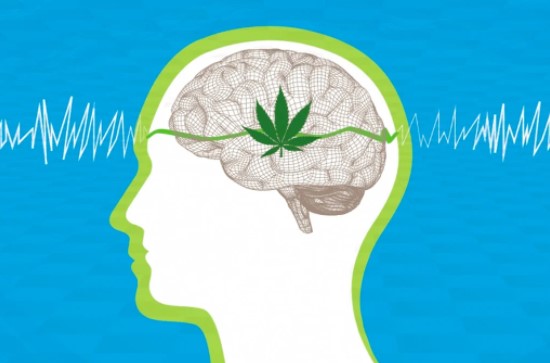
Side effects of THC versus CBD
CBD is easily absorbed and tolerated by both body and brain – even in very large doses. Therefore, overdose on CBD is not a risk.
However, you should be aware of the interaction that CBD can potentially have with other prescribed medications – so always investigate the matter with your doctor first.
THC has a number of well-documented side effects such as:
- Increased heart rate
- Lower blood pressure
- Dizziness, lack of balance
- Slower reaction time
- Memory loss
- Dry mouth
- Red eyes
It should be emphasized that neither CBD nor THC is fatal. In the real world, it’s impossible to ingest enough CBD or THC to trigger a fatal overdose.
However, there is growing evidence that, especially teenagers who consume THC regularly over an extended period of time, may experience negative cognitive and psychological side effects.
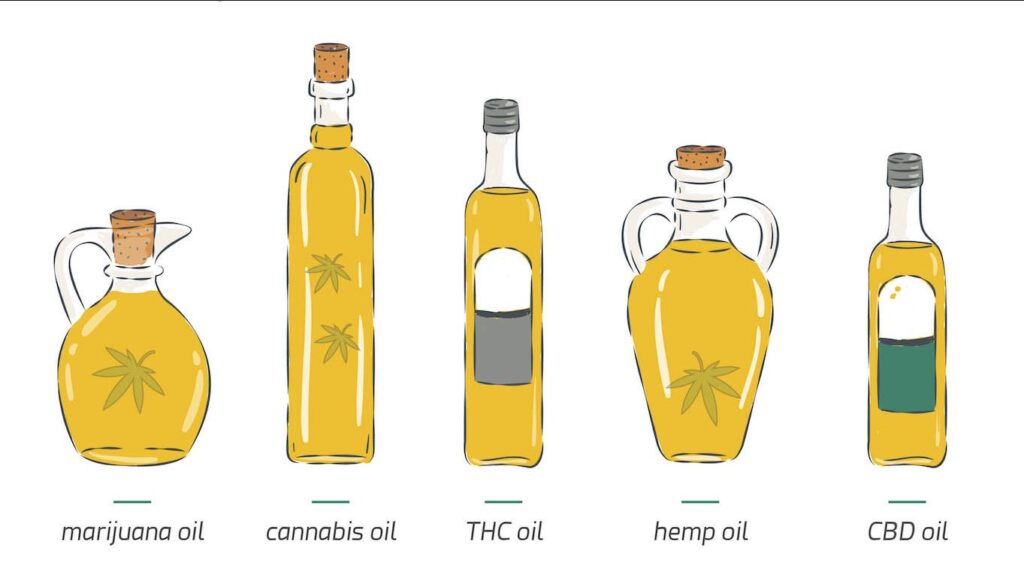
Cannabis THC Oil
Marijuana THC oil is a purified, refined, and very potent oiled form of THC.
CBD oil is not the same as THC oil or hemp oil. THC oil is technically a form of cannabis oil but differs from all other types of cannabis because it contains THC and is therefore euphoric. It can be smoked, evaporated, or added to food, but it is important to regulate the amount as this will affect the potency of the THC intoxication.
THC oil has medicinal value but is taken primarily due to its intoxicating effect. In contrast, CBD oil is not intoxicating and has at least as much medicinal value.
Most people do not want to be affected, but would like to enjoy some of the beneficial effects of cannabis – therefore CBD oil is often more sought after than THC oil.

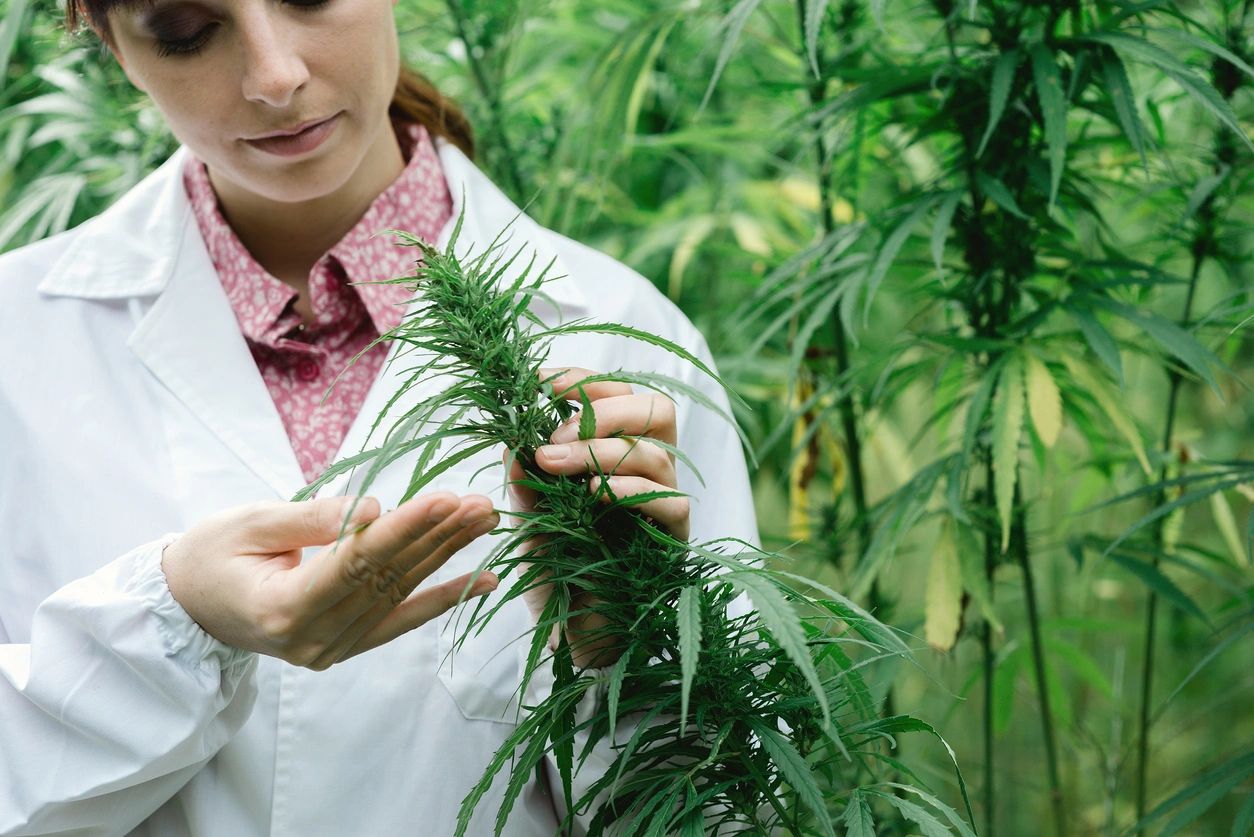
[…] CBD Content […]
[…] What is CBD? […]